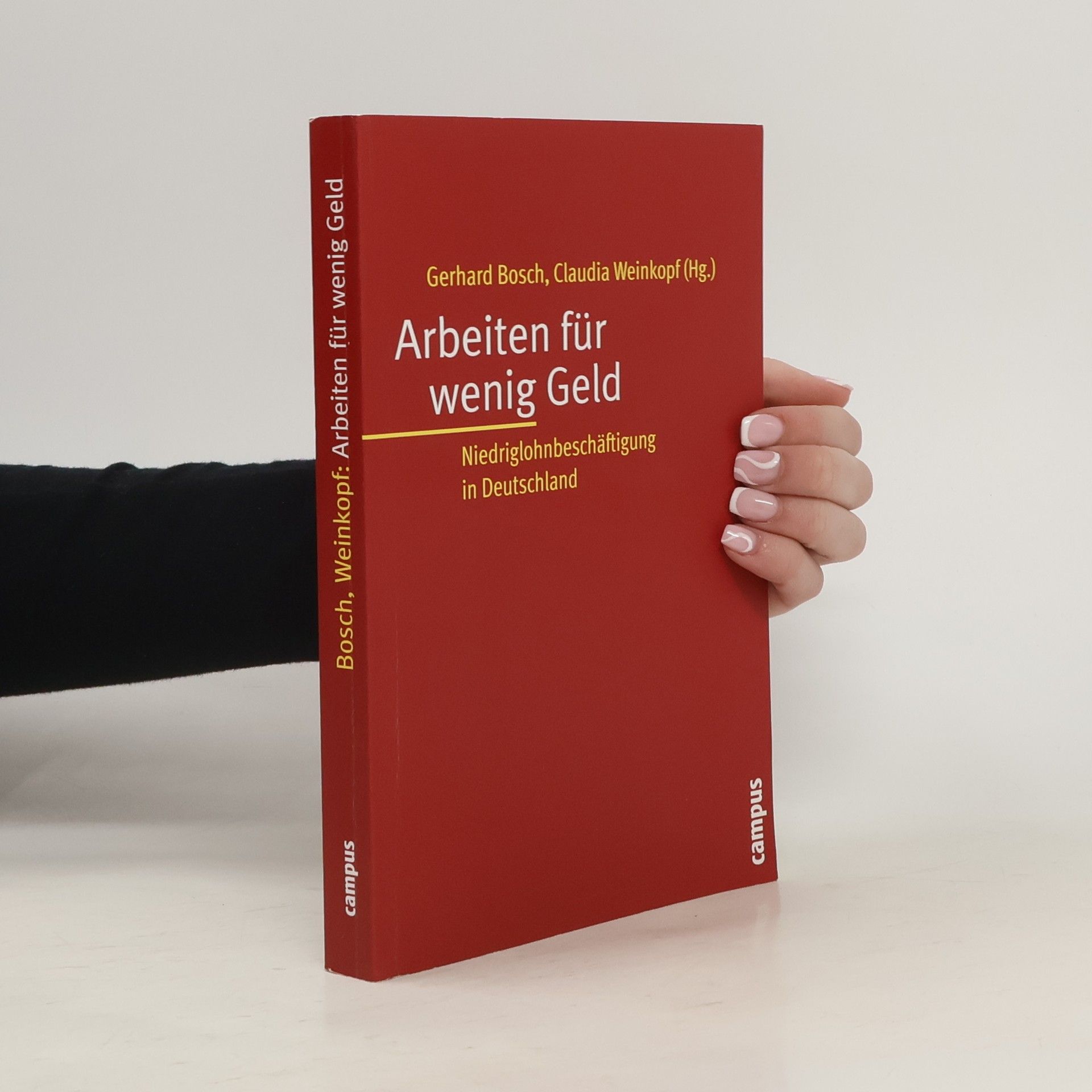The book presents the results of the first comprehensive empirical study on the control of minimum wages in Germany. It offers an overview of the challenges and problems of enforcement and compliance with minimum wages, taking three sectors as examples (construction, meat industry, hospitality). On the basis of numerous interviews with experts from the field (e. g. trade unions, employers' associations, customs) and a comprehensive evaluation of the broad international research literature, it identifies starting points and strategies for sustainably improving compliance with and enforcement of minimum wages.
Gerhard Bosch Boeken





Heiterer Nonsens
Mit Unsinn gegen den Ernst des Lebens
Arbeiten für wenig Geld
- 319bladzijden
- 12 uur lezen
Seit Mitte der 1990er Jahre steigt die Niedriglohnbeschäftigung in Deutschland sprunghaft an. Was sind die Triebkräfte dieser Entwicklung? Welche Arbeitsplätze sind besonders betroffen? Anhand der Beispiele Call Center, Einzelhandel, Ernährungsindustrie, Hotel und Krankenhaus verleihen die Autoren des Bandes der Niedriglohnarbeit in Deutschland ein Gesicht und zeigen, wo politischer Handlungsbedarf besteht, etwa die Einführung von Mindestlöhnen.
Der Bauarbeitsmarkt
Soziologie und Ökonomie einer Branche
Die OECD kommt in ihrer Untersuchung der Einkommensentwicklung zu dem Schluss, dass es kaum Belege dafür gibt, dass Länder mit einem geringen Anteil an Niedrigbezahlten dies auf Kosten höherer Arbeitslosenzahlen oder eines geringeren Beschäftigungsniveaus erreicht haben. Die Gründe, warum mehr Ungleichheit auf dem Arbeitsmarkt nicht die prognostizierten Effekte zeigt, liegen in zwei Mängeln des theoretischen Modells. Erstens wird die Dynamik der Arbeitsmärkte nicht berücksichtigt. Die Annahme, dass man Löhne senken kann, ohne dass sich das Verhalten von Beschäftigten und Unternehmen ändert, ist unrealistisch. Sinkende Löhne führen oft zu einem Rückgang der Motivation und der Grenzproduktivität, was die Beschäftigung unrentabel macht. Unternehmen investieren weniger in das Humankapital, was die Produktivität weiter senkt und die Anreize zur Beschäftigung unqualifizierter Arbeitskräfte verringert. Zweitens sind die Ursachen für Arbeitslosigkeit nicht allein im Arbeitsmarkt zu suchen; makroökonomische Faktoren wie Realzinsen, Währungsrelationen und Fiskalpolitik spielen eine entscheidende Rolle. Ein Vergleich zwischen Großbritannien und Deutschland zeigt, dass 90% der Unterschiede in der Arbeitsmarktentwicklung durch weniger restriktive Geldpolitik und andere makroökonomische Bedingungen erklärt werden können. In den USA war zudem die Innovationsdynamik erheblich größer, was zu einem höheren Beschäftigungswachstum in oberen Einko